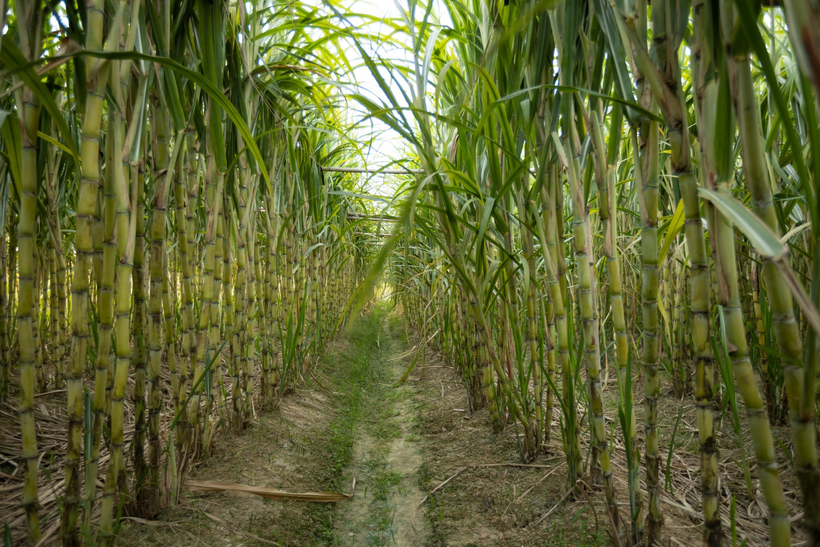
In today’s world, renewable energy sources are gaining increasing importance as we strive to reduce our dependence on fossil fuels and combat climate change. Ethanol, a biofuel made from corn and other organic materials, has emerged as a prominent player in the pursuit of sustainable energy solutions. As the demand for ethanol continues to rise, so does the need to increase its production. In this article, we will explore various strategies and technologies that can help boost ethanol production efficiently and sustainably.
Improving Feedstock Quality
One of the first steps in increasing ethanol production is to ensure a high-quality feedstock supply. Corn is the primary source of ethanol in the United States, and its quality directly affects the efficiency of production. Farmers can adopt practices like precision agriculture to optimize corn cultivation, ensuring healthier and higher-yielding crops. Additionally, exploring alternative feedstocks, such as switchgrass and sugarcane, can diversify ethanol production and reduce competition for corn resources.
Enhancing Fermentation Processes
Fermentation is a crucial step in ethanol production, where sugars are converted into ethanol by yeast or bacteria. To increase production, it’s essential to improve the efficiency of this process. This can be achieved through the development of advanced fermentation strains, optimizing fermentation conditions, and utilizing genetic engineering techniques to create more efficient microorganisms. These innovations can lead to higher ethanol yields and shorter fermentation times.
Implementing Advanced Distillation Techniques
Distillation is the separation process used to extract ethanol from the fermentation broth. Traditional distillation methods are energy-intensive and require significant heat input. However, the adoption of advanced distillation techniques, such as molecular sieves and membrane distillation, can reduce energy consumption and increase ethanol purity. These methods not only boost production but also contribute to environmental sustainability.
Utilizing Co-Products
Ethanol production generates various co-products, such as distillers’ grains, corn oil, and carbon dioxide. These co-products can be utilized to enhance the overall profitability of the ethanol plant. For instance, distillers’ grains can be used as animal feed, while corn oil can find applications in biodiesel production. By efficiently utilizing co-products, ethanol producers can increase their revenue streams and improve the sustainability of their operations.
Investing in Research and Development
Continued investment in research and development is crucial for advancing ethanol production technologies. Government agencies, academic institutions, and industry stakeholders should collaborate to fund research projects aimed at discovering new methods and improving existing ones. Breakthroughs in areas like enzyme technology and bioreactor design can significantly impact ethanol production efficiency.
Scaling up Production Facilities
To meet the growing demand for ethanol, it’s essential to scale up production facilities. Building larger ethanol plants or expanding existing ones can lead to economies of scale, reducing production costs. Moreover, strategically locating these facilities near abundant feedstock sources and transportation infrastructure can further enhance efficiency.
Embracing Sustainable Practices
Sustainability is a central concern in ethanol production. Embracing sustainable practices, such as reduced water usage, minimized waste generation, and reduced greenhouse gas emissions, not only aligns with environmental goals but can also result in cost savings. Ethanol producers can obtain certifications like the Low Carbon Fuel Standard (LCFS) to demonstrate their commitment to sustainability and access to new markets.
Diversifying Ethanol Blends
Ethanol is commonly blended with gasoline to create fuels like E10 (10% ethanol) and E85 (85% ethanol). Diversifying ethanol blends and increasing the ethanol content in gasoline can stimulate demand for ethanol. Government policies and incentives that encourage higher ethanol blends can create a more robust market for ethanol producers.
Supporting Infrastructure Development
Infrastructure plays a crucial role in the distribution and utilization of ethanol-blended fuels. Expanding the availability of E85 and E15 at gas stations across the country can drive ethanol consumption. Additionally, investing in pipeline infrastructure for ethanol transportation can make the supply chain more efficient and cost-effective.
Regulatory and Policy Advocacy
Advocating for supportive policies and regulations is vital for the ethanol industry. Ethanol producers should work with policymakers to ensure favorable conditions for their growth. This includes advocating for renewable fuel standards (RFS), tax incentives, and trade policies that promote ethanol production and export. Increasing ethanol production is a multifaceted endeavor that requires innovation, collaboration, and a commitment to sustainability. As the world transitions towards cleaner and more sustainable energy sources, ethanol has a significant role to play. By improving feedstock quality, optimizing fermentation processes, embracing advanced distillation techniques, and adopting sustainable practices, the ethanol industry can continue to thrive and contribute to a greener future. Additionally, investments in research and development, infrastructure development, and policy advocacy will further support the growth of ethanol production, making it an essential component of the renewable energy landscape.